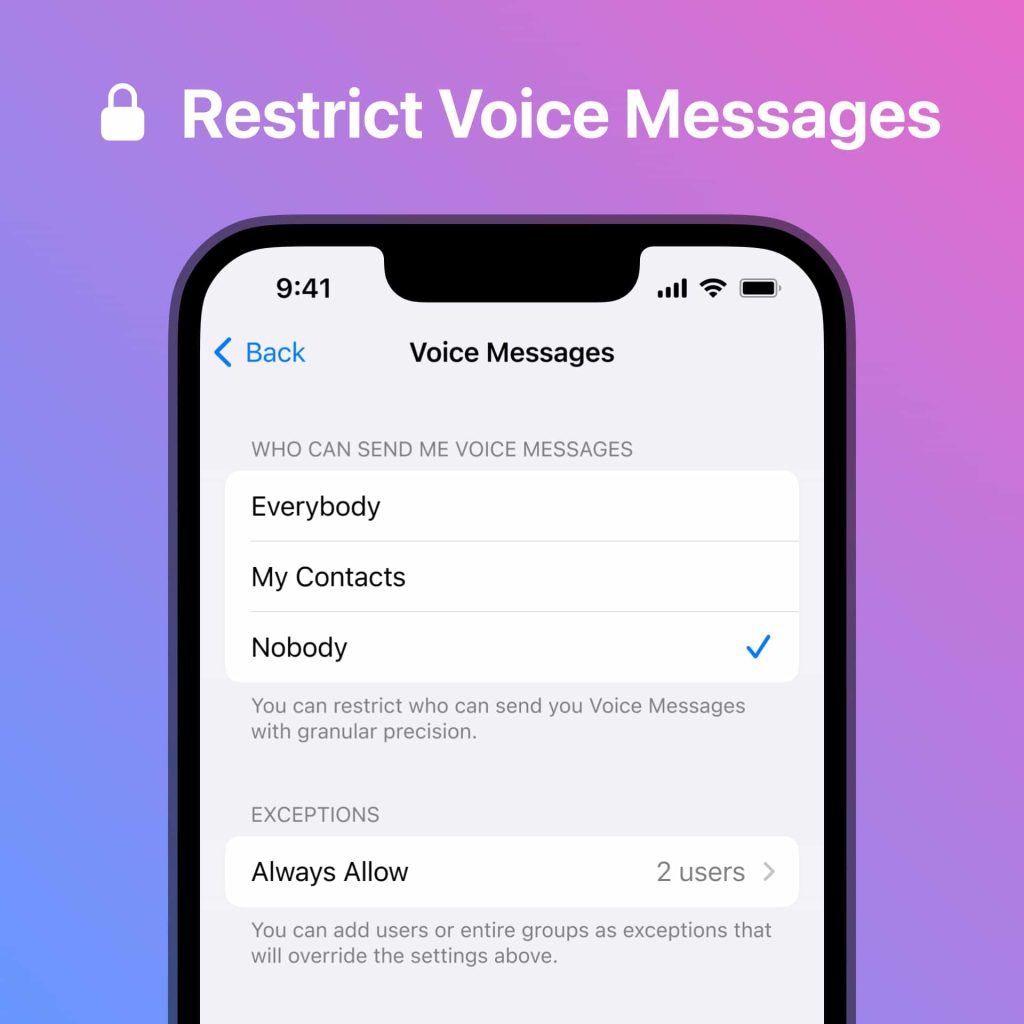
Yes, Trust Wallet collects IP addresses for security and fraud prevention purposes but does not use them to track users.
Trust Wallet’s Privacy Policy
Overview of Trust Wallet’s Data Collection
Trust Wallet is committed to maintaining user privacy and security. Their privacy policy outlines the types of data they collect and how it is used to enhance the user experience while ensuring the security of user information.
- Minimal Data Collection: Trust Wallet collects minimal data compared to other services, focusing primarily on information necessary for app functionality and security.
- Non-Custodial Nature: As a non-custodial wallet, Trust Wallet does not store user private keys, transaction data, or personal information on their servers.
- Usage Data: The app may collect anonymous usage data to help improve functionality and user experience, such as app performance metrics and error logs.
Key Points from the Privacy Policy
Trust Wallet’s privacy policy highlights several key points regarding data collection and user privacy.
- No Storage of Private Keys: Trust Wallet does not store or have access to user private keys, ensuring that users retain full control over their digital assets.
- Limited Personal Data: Trust Wallet collects only essential personal data, such as email addresses for support and communication purposes.
- IP Address Collection: Trust Wallet may collect IP addresses for security and fraud prevention purposes. However, this data is not used to track user activity or link to personal information.
- Data Encryption: All collected data is encrypted and stored securely to prevent unauthorized access and ensure user privacy.
- Third-Party Services: Trust Wallet may use third-party services for analytics and improvement purposes, but these services are carefully vetted to ensure they comply with strict privacy standards.
- User Consent: Users are informed about data collection practices and must provide consent before any personal data is collected or used.

Data Collection Practices
Types of Data Collected
Trust Wallet adheres to a minimalistic approach to data collection, focusing on gathering only the necessary information to ensure the app’s functionality and security. The types of data collected include:
- IP Addresses: Collected for security purposes and to prevent fraudulent activities.
- Usage Data: Anonymous data such as app performance metrics, error logs, and usage patterns to improve app functionality and user experience.
- Email Addresses: Collected when users contact support or subscribe to updates, used solely for communication purposes.
Purpose of Data Collection
The primary goal of Trust Wallet’s data collection practices is to enhance security, improve user experience, and ensure the smooth functioning of the app. The purposes include:
- Security and Fraud Prevention: Collecting IP addresses helps detect and mitigate fraudulent activities, ensuring a secure environment for users.
- App Improvement: Anonymous usage data helps the development team understand how users interact with the app, identifying areas for improvement and optimizing performance.
- Customer Support: Email addresses are used to provide effective support and communication, addressing user inquiries and issues promptly.
- Compliance with Legal Requirements: Ensuring that the app complies with applicable laws and regulations regarding data protection and user privacy.
IP Address Usage
Why IP Addresses Might Be Collected
Trust Wallet collects IP addresses primarily for security and operational reasons. Understanding why this data is collected can help users appreciate the measures taken to protect their information and ensure smooth app performance.
- Security Measures: IP addresses are collected to detect and prevent suspicious activities, such as unauthorized access attempts or potential fraud.
- Geolocation Services: Collecting IP addresses can help determine the general geographic location of users, which may be used to enhance the app’s functionality and user experience.
- Compliance: IP address collection can help Trust Wallet comply with legal and regulatory requirements, ensuring that they meet global standards for data protection and user privacy.
How IP Addresses Are Used
Once collected, IP addresses are utilized in several ways to support the app’s functionality, security, and compliance efforts.
- Fraud Detection and Prevention: IP addresses are analyzed to identify unusual patterns or locations that could indicate fraudulent activities. This helps protect user accounts from unauthorized access.
- Performance Optimization: By understanding the geographic distribution of users, Trust Wallet can optimize server performance and reduce latency, providing a smoother experience for users around the world.
- Legal Compliance: IP addresses may be used to ensure Trust Wallet adheres to legal and regulatory requirements, such as those related to anti-money laundering (AML) and counter-terrorism financing (CTF) laws.
- User Support and Troubleshooting: In case of technical issues, IP addresses can help the support team diagnose and resolve problems more effectively by understanding the network conditions users are experiencing.

User Privacy and Security
Measures to Protect User Privacy
Trust Wallet takes several measures to ensure user privacy and safeguard personal information. These efforts are aimed at minimizing data collection and protecting any data that is collected.
- Minimal Data Collection: Trust Wallet collects only essential information necessary for app functionality and security, reducing the risk of data exposure.
- Anonymous Usage Data: Any usage data collected is anonymized to prevent the identification of individual users.
- Strict Access Controls: Access to user data is restricted to authorized personnel only, ensuring that data is handled securely and responsibly.
- User Consent: Users are informed about data collection practices and must provide consent before any personal data is collected or used.
Data Encryption and Security Protocols
To protect the data collected and ensure the highest level of security, Trust Wallet employs advanced encryption and security protocols.
- End-to-End Encryption: All data transmitted between the user’s device and Trust Wallet servers is encrypted using industry-standard encryption protocols, ensuring data privacy and integrity.
- Data at Rest Encryption: Any sensitive data stored on Trust Wallet servers is encrypted to protect it from unauthorized access.
- Biometric Authentication: Trust Wallet supports biometric authentication (such as fingerprint and facial recognition) to add an additional layer of security for accessing the app.
- Regular Security Audits: Trust Wallet undergoes regular security audits to identify and address potential vulnerabilities, ensuring the app remains secure against emerging threats.
- Secure Coding Practices: The development team follows secure coding practices to minimize the risk of security flaws and ensure robust protection of user data.

Comparisons with Other Wallets
Data Collection Practices of Other Wallets
Different cryptocurrency wallets have varying approaches to data collection. Here’s a look at how some popular wallets handle user data compared to Trust Wallet.
- Coinbase Wallet: As a custodial wallet, Coinbase collects more personal information, including identity verification details, transaction history, and IP addresses. This is necessary for compliance with financial regulations but involves more extensive data collection.
- MetaMask: Similar to Trust Wallet, MetaMask is a non-custodial wallet that emphasizes user control over private keys. It collects minimal data, focusing primarily on user interaction with decentralized applications (DApps) and performance metrics.
- Ledger Live: As a hardware wallet companion app, Ledger Live collects basic usage data and information related to hardware interactions. However, it does not collect private keys or sensitive personal information, aligning closely with Trust Wallet’s minimal data collection approach.
Trust Wallet vs. Competitors
When comparing Trust Wallet to its competitors, several key differences in data collection and user privacy stand out.
- Minimal Data Collection: Trust Wallet collects only essential data, such as IP addresses for security and basic usage metrics. This minimalistic approach aligns with the privacy preferences of many cryptocurrency users.
- Non-Custodial Nature: Unlike custodial wallets like Coinbase, Trust Wallet does not store private keys or personal information on its servers, giving users full control over their funds.
- User Control: Trust Wallet emphasizes user control and privacy, similar to MetaMask and Ledger Live, by ensuring that private keys are kept on the user’s device and not accessible by Trust Wallet.
- Security Measures: Trust Wallet employs robust security protocols, including encryption and biometric authentication, to protect user data. This is comparable to the high security standards maintained by Ledger Live and MetaMask.

Legal and Regulatory Compliance
Compliance with Data Protection Laws
Trust Wallet adheres to various legal and regulatory frameworks to ensure the protection of user data and compliance with global standards.
- GDPR Compliance: Trust Wallet complies with the General Data Protection Regulation (GDPR), which governs data protection and privacy in the European Union. This includes measures such as providing users with the right to access, correct, or delete their personal data.
- CCPA Compliance: In accordance with the California Consumer Privacy Act (CCPA), Trust Wallet ensures that users in California can exercise their rights to know what personal data is collected, how it is used, and request deletion of their data.
- Data Minimization: Trust Wallet adheres to the principle of data minimization, collecting only the data that is necessary for the functionality and security of the app. This reduces the risk of data breaches and ensures compliance with data protection laws.
- Transparency: Trust Wallet maintains transparency about its data collection practices, informing users about what data is collected, how it is used, and the measures in place to protect it.
Trust Wallet’s Commitment to User Privacy
Trust Wallet is dedicated to maintaining user privacy through robust policies and practices.
- User Consent: Trust Wallet obtains explicit user consent for data collection and processing, ensuring that users are fully informed and agree to the terms of data use.
- Privacy by Design: Trust Wallet incorporates privacy by design principles, embedding strong privacy features and data protection measures into the app’s architecture from the outset.
- Regular Audits: The company conducts regular audits and reviews of its data protection practices to ensure ongoing compliance with legal requirements and to adapt to new regulations as needed.
- Data Security: Trust Wallet employs state-of-the-art encryption and security protocols to protect user data, ensuring that it remains confidential and secure from unauthorized access.
- Commitment to Transparency: Trust Wallet is committed to being transparent with users about their data collection, storage, and usage policies. Detailed privacy policies are readily available, and users are kept informed of any changes.

Managing Your Data
How to Limit Data Sharing
Trust Wallet provides users with options to manage and limit the sharing of their data, ensuring user privacy and control over personal information.
- Adjust Privacy Settings: Within the Trust Wallet app, users can adjust privacy settings to limit data sharing. This may include opting out of certain data collection practices.
- Disable Analytics: Users can choose to disable analytics and usage data collection through the app settings. This helps minimize the amount of data sent to Trust Wallet’s servers.
- Secure Connections: Always use secure connections, such as VPNs, when accessing Trust Wallet to prevent third parties from intercepting data.
- Minimal Personal Information: Avoid entering unnecessary personal information within the app or during support interactions to limit data exposure.
- Regular Updates: Keep the app updated to benefit from the latest privacy features and security enhancements that help protect user data.
User Rights and Data Management Options
Trust Wallet respects user rights regarding data management, providing various options for users to control and manage their data.
- Access to Data: Users have the right to request access to their personal data collected by Trust Wallet. This can be done through the app’s settings or by contacting customer support.
- Data Correction: If any personal data is inaccurate or incomplete, users have the right to request corrections. This ensures that all data held by Trust Wallet is accurate and up-to-date.
- Data Deletion: Users can request the deletion of their personal data from Trust Wallet’s servers. This is particularly important for users who wish to completely remove their data from the platform.
- Data Portability: Trust Wallet provides options for data portability, allowing users to receive their data in a commonly used format and transfer it to another service if needed.
- Right to Restrict Processing: Users can request restrictions on how their personal data is processed, particularly in scenarios where the accuracy of the data is contested or if the processing is unlawful.
- Contact Support: For any data management requests, users can contact Trust Wallet support through the app or via official communication channels to exercise their rights.